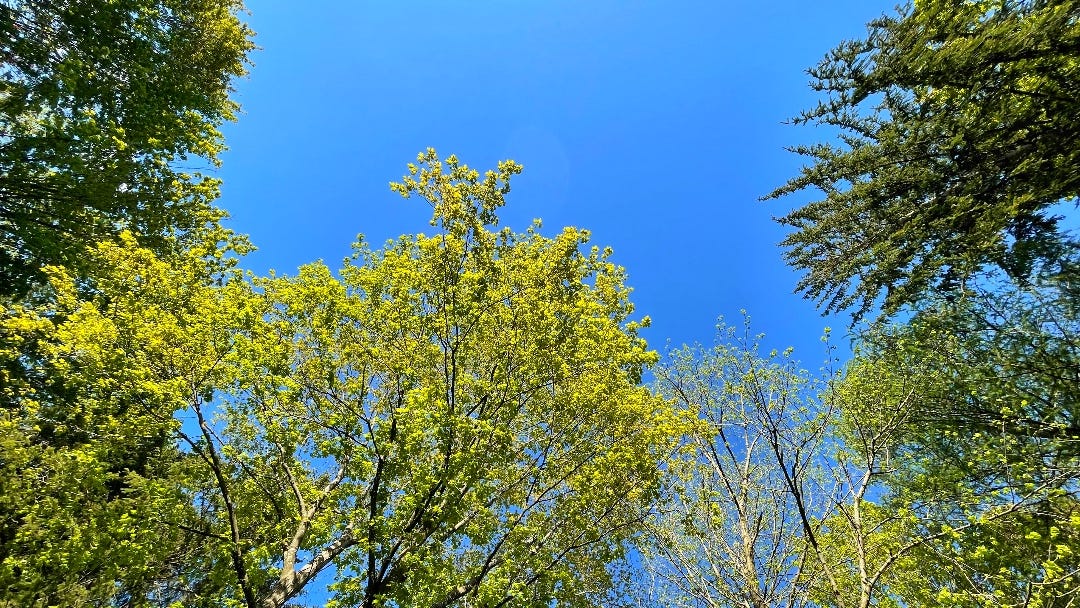What the COVID-19 crisis taught us about the climate crisis
Governments should be better at preventing, preparing for, and dealing with planetary crises like climate change, biodiversity loss, or pollution.
Later this morning, I will get my first COVID-19 vaccination in Ottawa City Hall. Like most of you, I followed in the past year the progress of developing the vaccine and waited my turn. As you will recognize from my earlier writing, I admire the scientists who found an innovative and efficient solution for a new problem at record speed. And as so often, I am less impressed with the governance aspects of dealing with a global problem. We don't do enough to prevent pandemics, to prepare for them, and, as we have seen this year, deal with them.
Sounds familiar? Yes, I have often argued that our governments should be better at preventing, preparing for, and dealing with planetary challenges like climate change, biodiversity loss, or pollution. The lessons learned from the pandemic will be helpful when dealing with these other crises. Unfortunately, governments are not known to be good students. I fear that we will see them making the same mistakes.
Fast and decisive
Fast and decisive action proved to be effective in several countries; economies rebounded much more rapidly, and fewer people died. Some countries championed giving more protection to free-market economies than their citizens; Brazil, the UK, and the US have paid a heavy price for that in both the death toll and economy.
It reminds me of the many studies that argue that it is cheaper to take effective climate action by rapidly reducing greenhouse gas emissions and transforming the energy system. But governments have for decades stalled decisive measures. The estimated additional damage of climate change resulting from a lack of timely action will far outweigh the cost of taking action now.
Don’t compromise during a crisis
Governments like compromises. Gas is a good example, it sounds like a midway station between coal and renewables, so it seems ideal to please both the fossil fuel industry and those concerned about the climate. But middle-of-the-road compromises don't work in times of crises. The fire brigade doesn't just put out half of the fire, and a general doesn't fight half a battle. And if you ever find yourself in a situation to perform CPR, please go fast, efficient, and don't compromise on half a job done.
For many of you, reading this in North America or Europe, you may feel that the end of the pandemic is in sight. And I must admit that I also have that feeling, knowing that I will get my first jab while you are reading this. But we live on a small, highly interconnected planet with enormous social and economic differences between countries and within countries. The roll-out of the vaccines has hardly begun in many other countries. Like climate change, we have a moral obligation to help everyone worldwide. And if that is not convincing to you, you should realize that a mutating virus doesn't respect borders.
Climate justice
The north doesn't have a good track record in helping the south when we look at the example of climate change. And unlike the pandemic, there is the additional argument for assisting in preparing for and dealing with climate change; the industrialized nations created the problem while the poorest countries are hit most rigid and have the least capability to deal with its effects.
I hope that governments will learn some lessons from the pandemic for dealing with climate change: we are all together on this small, fragile planet, we need solidarity, and governments should work better together. Governments should also listen to scientists, not only when it is too late, but especially when there is still time to prevent the worst effects of climate change and when there is still time to prepare and help other countries to take timely measures.
In the late Friday afternoon, I was thinking about all this on the first warm day in Ottawa. I looked up to the beautiful blue sky, and the trees that still have light green color leaves this season. I took a photo to show you what I saw: a beautiful planet worth preserving for the next generations.
If you enjoy reading The Planet, you help other readers and me if you do one of the following:
If you don’t receive this newsletter yet, please sign up to receive it in your inbox. More signups make this publication more visible, and you have something to read while you drink your coffee.
If you have signed up and still like it, please consider taking a subscription. If you can’t afford it, please stay and keep reading.
If you have subscribed, you already made me happy. Stay, enjoy, comment, and consider giving a subscription to your friends.d







Glad you are vaccinated. Seems so strange that here in the US so many are opting out to get the vaccine. The misinformation spread by social media has really made an impact on vaccination efforts.
Many here recognize the importance of action on climate change. The difficulty comes getting legislators to do something about it. Seems local governments are doing more than the federal one. One hopes this will change. Love the photo📸
Enjoy the coming freedom of full vaccination. Feels great here!